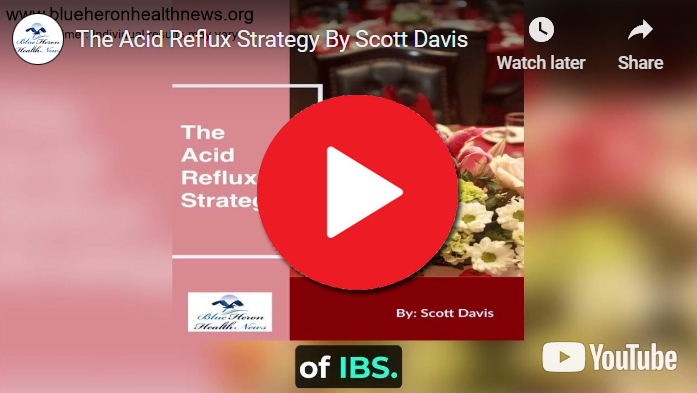
Acid Reflux Strategy™ By Scott Davis According to this eBook, you can start removing the symptoms of acid reflux and other similar problems just by making some changes in your diet, levels of stress, and lifestyle. It will guide you on how to change from the combination of food items to the sleep positions to relieve your problems. It also includes a list of food items you should focus on while shopping for it to find a natural treatment for your symptoms.
What lifestyle changes can help manage acid reflux?
Acid reflux, also known as gastroesophageal reflux disease (GERD), is a condition where stomach acid flows back into the esophagus, causing symptoms such as heartburn, chest pain, and regurgitation. Managing acid reflux often involves a combination of medical treatment and lifestyle changes. Here are several lifestyle modifications that can help alleviate symptoms and improve overall quality of life:
1. Dietary Adjustments
A. Avoid Trigger Foods and Beverages Certain foods and beverages can trigger acid reflux symptoms by relaxing the lower esophageal sphincter (LES) or increasing stomach acid production. Common triggers include:
- Fatty or Fried Foods: These can delay stomach emptying and increase the risk of acid reflux.
- Spicy Foods: They can irritate the esophagus and exacerbate symptoms.
- Citrus Fruits and Juices: Oranges, lemons, and grapefruit are acidic and can worsen symptoms.
- Tomatoes and Tomato-Based Products: These are also acidic and can contribute to reflux.
- Garlic and Onions: These can relax the LES, leading to symptoms.
- Chocolate: Contains methylxanthine, which can relax the LES.
- Caffeinated and Carbonated Beverages: Coffee, tea, soda, and energy drinks can increase acid production and pressure in the stomach.
- Alcohol: Can relax the LES and increase stomach acid production.
B. Eat Smaller, More Frequent Meals Large meals can put pressure on the LES and increase the likelihood of acid reflux. Eating smaller, more frequent meals can help reduce this pressure and prevent symptoms.
C. Avoid Eating Before Bedtime Lying down after eating can increase the risk of acid reflux. It is recommended to avoid eating at least 2-3 hours before bedtime to allow the stomach to empty.
D. Chew Food Thoroughly and Eat Slowly Chewing food thoroughly and eating slowly can help reduce the risk of acid reflux by making it easier for the digestive system to process the meal.
E. Maintain Adequate Hydration Drinking plenty of water throughout the day can help dilute stomach acid and promote digestion. However, it is advisable to avoid large amounts of water with meals, as this can increase stomach volume and pressure.
2. Lifestyle Modifications
A. Elevate the Head of the Bed Elevating the head of the bed by about 6-8 inches can help prevent stomach acid from flowing back into the esophagus while sleeping. This can be achieved using bed risers or a wedge pillow.
B. Maintain a Healthy Weight Excess body weight, especially around the abdomen, can put pressure on the stomach and LES, increasing the risk of acid reflux. Maintaining a healthy weight through diet and exercise can help reduce symptoms.
C. Avoid Tight Clothing Tight clothing, especially around the waist, can put pressure on the abdomen and LES, leading to reflux. Wearing loose-fitting clothing can help alleviate this pressure.
D. Quit Smoking Smoking can weaken the LES and increase the production of stomach acid, exacerbating acid reflux symptoms. Quitting smoking is beneficial for overall health and can significantly reduce symptoms.
3. Behavioral Changes
A. Avoid Lying Down After Meals Remaining upright for at least 2-3 hours after eating can help prevent acid from flowing back into the esophagus. This is particularly important after large meals or meals that contain trigger foods.
B. Manage Stress Stress and anxiety can exacerbate acid reflux symptoms. Incorporating stress management techniques such as deep breathing exercises, meditation, yoga, or other relaxation practices can help manage symptoms.
C. Be Mindful of Eating Habits Being mindful during meals—such as avoiding eating while distracted, eating too quickly, or consuming large portions—can help reduce the risk of acid reflux.
D. Avoid Certain Over-the-Counter Medications Some over-the-counter medications, such as nonsteroidal anti-inflammatory drugs (NSAIDs) like ibuprofen, can irritate the stomach lining and worsen acid reflux symptoms. Consult a healthcare provider about alternatives if needed.
4. Dietary Supplements and Herbal Remedies
A. Ginger Ginger has natural anti-inflammatory properties and can help soothe the digestive tract. It can be consumed as a tea, added to food, or taken in supplement form.
B. Probiotics Probiotics can help balance gut bacteria and improve digestion, potentially reducing acid reflux symptoms. Probiotics can be found in yogurt, kefir, and supplements.
C. Aloe Vera Aloe vera juice is thought to have soothing properties for the esophagus and stomach lining. However, it is important to choose products specifically designed for consumption and to consult a healthcare provider before use.
5. Monitoring and Tracking Symptoms
A. Keep a Food Diary Tracking food intake and symptoms can help identify specific triggers and patterns. A food diary can be a useful tool for making dietary adjustments and discussing symptoms with a healthcare provider.
B. Regular Medical Check-Ups Regular check-ups with a healthcare provider can help monitor the condition and adjust treatment plans as needed. This is especially important if symptoms persist despite lifestyle changes, as chronic acid reflux can lead to complications such as esophagitis or Barrett’s esophagus.
Conclusion Lifestyle changes can play a significant role in managing acid reflux and improving quality of life. While these modifications can be highly effective, it is essential to consult a healthcare provider for a personalized treatment plan, especially if symptoms are severe or persistent. Combining lifestyle changes with medical treatment, when necessary, can help achieve the best outcomes in managing acid reflux.
Acid Reflux Strategy™ By Scott Davis According to this eBook, you can start removing the symptoms of acid reflux and other similar problems just by making some changes in your diet, levels of stress, and lifestyle. It will guide you on how to change from the combination of food items to the sleep positions to relieve your problems. It also includes a list of food items you should focus on while shopping for it to find a natural treatment for your symptoms.
